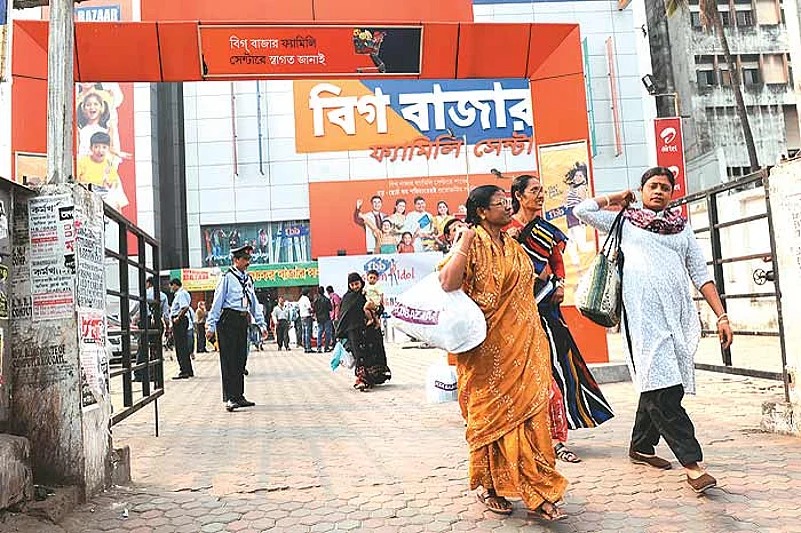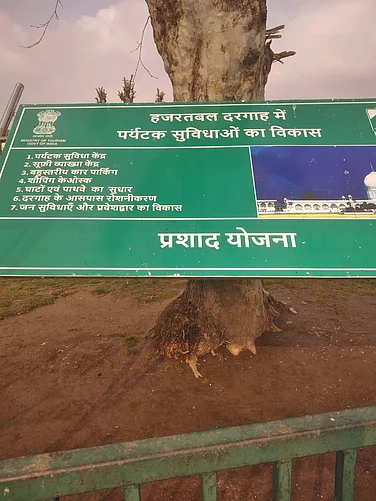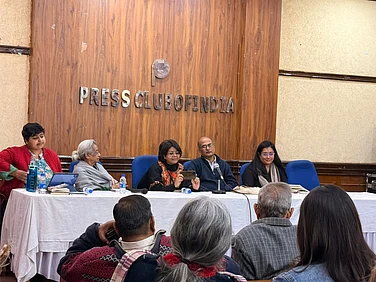Once a week, thirtysomething Sohini Roy, who lives in Agarpara in suburban West Bengal, gets up at the crack of dawn and boards an early morning train to Calcutta. “I do my weekly grocery shopping at Big Bazaar,” she explains. The supermarket chain is among the several organised retail stores that have recently come up in Calcutta, attracting customers not just from within the city but from the districts and suburbs as well. The convenience of organised retail where “you can get everything under one roof” (as one customer puts it) is making Bengalis flock to these chains.
Clearly, the Bengali consumer, contrary to notions otherwise, is not the careful, conservative shopper or spender she is made out to be. This renders the current controversy over the implementation of FDI in the state rather ironic. Homemaker Roy Chakraborty is one of the many consumers in Calcutta who doesn’t agree with the government and wants foreign retailers in the state. “Why should we be deprived of the range of goods and the choice that other cities in the country will get?” she asks.
Despite the boom in organised retail, small traders have not faded away as was feared, reflecting the dichotomy in Bengali shopping habits. “I prefer fresh ‘maachh’ to frozen fish any day,” says Sumita Das, who picks up her breakfast cereal from Spencer’s but prefers groceries, fruits and vegetables from the corner stores and open markets.
Nevertheless, talk of FDI has made small traders apprehensive. “We’ll be out with begging bowls,” says Sujata Ghosh who owns a grocery store. But Satyendra Jaiswal, who travels for over an hour by bus from his village in Hooghly to shop at Big Bazaar, asks what the fuss is all about. “Farmers are not getting a good deal even right now. Then?”


























